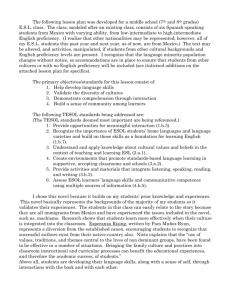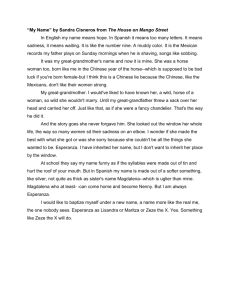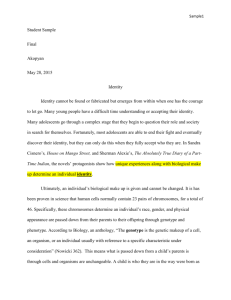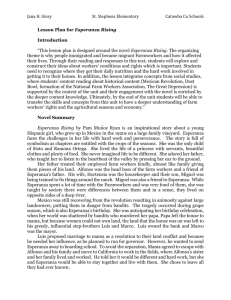The Glass of Time by Michael Cox Reviewed by Robert Harden It`s
advertisement
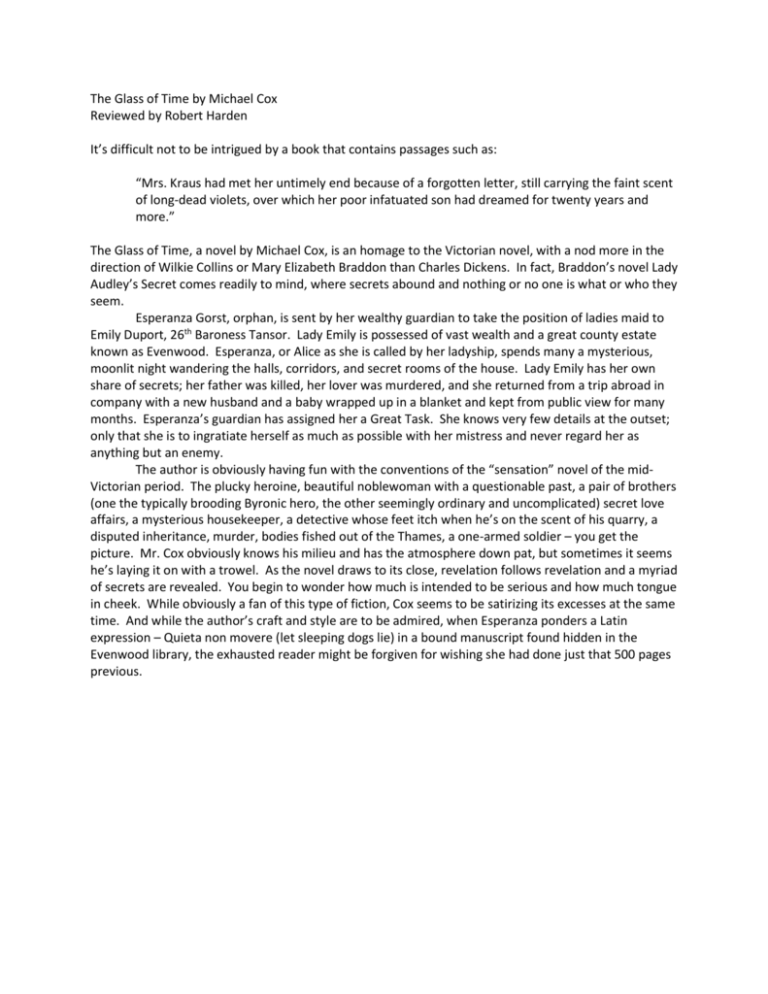
The Glass of Time by Michael Cox Reviewed by Robert Harden It’s difficult not to be intrigued by a book that contains passages such as: “Mrs. Kraus had met her untimely end because of a forgotten letter, still carrying the faint scent of long-dead violets, over which her poor infatuated son had dreamed for twenty years and more.” The Glass of Time, a novel by Michael Cox, is an homage to the Victorian novel, with a nod more in the direction of Wilkie Collins or Mary Elizabeth Braddon than Charles Dickens. In fact, Braddon’s novel Lady Audley’s Secret comes readily to mind, where secrets abound and nothing or no one is what or who they seem. Esperanza Gorst, orphan, is sent by her wealthy guardian to take the position of ladies maid to Emily Duport, 26th Baroness Tansor. Lady Emily is possessed of vast wealth and a great county estate known as Evenwood. Esperanza, or Alice as she is called by her ladyship, spends many a mysterious, moonlit night wandering the halls, corridors, and secret rooms of the house. Lady Emily has her own share of secrets; her father was killed, her lover was murdered, and she returned from a trip abroad in company with a new husband and a baby wrapped up in a blanket and kept from public view for many months. Esperanza’s guardian has assigned her a Great Task. She knows very few details at the outset; only that she is to ingratiate herself as much as possible with her mistress and never regard her as anything but an enemy. The author is obviously having fun with the conventions of the “sensation” novel of the midVictorian period. The plucky heroine, beautiful noblewoman with a questionable past, a pair of brothers (one the typically brooding Byronic hero, the other seemingly ordinary and uncomplicated) secret love affairs, a mysterious housekeeper, a detective whose feet itch when he’s on the scent of his quarry, a disputed inheritance, murder, bodies fished out of the Thames, a one-armed soldier – you get the picture. Mr. Cox obviously knows his milieu and has the atmosphere down pat, but sometimes it seems he’s laying it on with a trowel. As the novel draws to its close, revelation follows revelation and a myriad of secrets are revealed. You begin to wonder how much is intended to be serious and how much tongue in cheek. While obviously a fan of this type of fiction, Cox seems to be satirizing its excesses at the same time. And while the author’s craft and style are to be admired, when Esperanza ponders a Latin expression – Quieta non movere (let sleeping dogs lie) in a bound manuscript found hidden in the Evenwood library, the exhausted reader might be forgiven for wishing she had done just that 500 pages previous.



